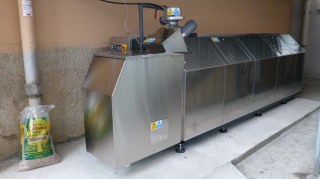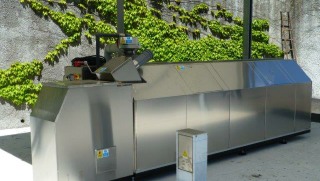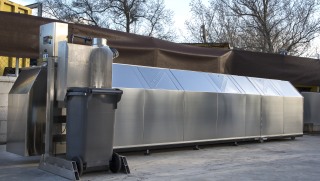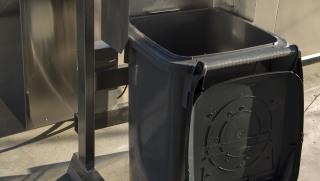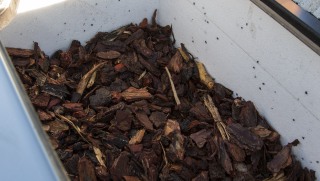The municipality of El Boalo-Cerceda-Mataelpino, located just 50 km from the state capital and at the foot of the mountains that make up the National Park of the Sierra del Guadarrama, has long been famous for the innovative nature of its policies and especially in terms of waste management, in a clear example that sustainability and innovation should occupy a prominent place in municipal policies.
In July 2016 the municipality of El Boalo, with Blanca Ruiz at the head of the Department of the Environment and the waste management service, decided to overturn the municipal waste policy and began the remunicipalisation of the service collection, to date in the hands of a company, taking control of the waste management with the proper means of the municipality and a clear ecosocial commitment. For this, the “Zero Waste” strategy were launched, awarded by the XXVII edition of the National Culture Viva Awards, in which it is distinguished with the award for the best locality for its proposal for circular economy and “zero waste”.
This strategy includes various proposals aimed at avoiding the generation of waste that cannot be managed directly in the municipality, for which actions are being implemented up to now, such as the use of a herd of Guadarrameñas goats as a means of treating the remains of pruning that are produced by the municipality or the use of “avicomposteros” in which hens are responsible for the treatment of 4,000 kg per year of biowaste produced in schools, actions with a clear component of environmental education.
But although such original actions have been responsible for the important visibility of the El Boalo project, they are not the only ones developed by this municipality of just over 7,500 inhabitants, the strategy of the municipality directed by Javier de los Nietos has a long history, deeper and consolidated based on four fundamental pillars, the “zero waste”, the “circular economy”, environmental education, and agroecology.
To this end, it now has more than 250 individual and community composters, door-to-door collection, recovery of equipment and tools and they work on new projects such as the collection of domestic oils for the production of biodiesel, which has led them to be distinguished last November with the VIII CONAMA prize (National Environmental Congress) for the Sustainability of Small and Medium Municipalities, besides being declared the “First Zero Waste Municipality of Madrid” by the Zero Waste Europe entity.
On this occasion it stands out again with another pioneering initiative, the start-up of the first automatic composting installation in CAM with BIG HANNA technology that will allow the composting of the bio residue collected selectively in the municipality in an automatic, fast way, controlled and without any external interaction, free of odors, insects, birds and other inconveniences that traditional systems have.
The BIG HANNA technology, of Swedish origin and distributed in Spain by BERCA BRAND, has been developed since 1991 and currently has more than 1,000 installations throughout the world and allows applying the most advanced technology to something as natural as the composting of biowaste. The biological process is developed inside the machine in a continuous and controlled way, which allows to develop the thermophilic, mesophilic and maturation phase inside the digester itself. This process can last between 6 and 10 weeks, which guarantees that the compost can be used safely, free of odors and pathogens. During this time, organic waste is reduced to 90% of its volume.
The BIG HANNA composting machines operate almost completely autonomous without hardly requiring the intermediation of personnel. The remote control of the machines allows access to the touch screen from remote or even from a smartphone or a tablet, receiving any alarms that may be caused as a result of a failure in the process, as well as reprogramming at a distance, the working times of aeration and rotation, thus correcting anomalies in the process.
The touch screen shows the temperature record and the settings of the programming, the inputs and outputs when recording, as well as the alerts and the power consumption. The log files can be downloaded to a USB stick, memory card or accessed remotely via the internet.
Thanks to this remote control, the automation of the process (low labor cost) and the low energy consumption, the operating costs of this installation are very low.
BERCA BRAND proposes a new model of bioremediation management by decentralizing its treatment through a strategic distribution of mini-plants in a territory, thus avoiding unnecessary transport of the largest and heaviest fraction contained in the waste. Its purpose is to bring the treatment closer to the sites which produces the waste.
Here the application of circular economy strategies is so booming and in view of the need to reach the aforementioned 2020 objectives by the municipalities, BERCA BRAND AND BIG HANNA contribute to a real change in line with these objectives.
